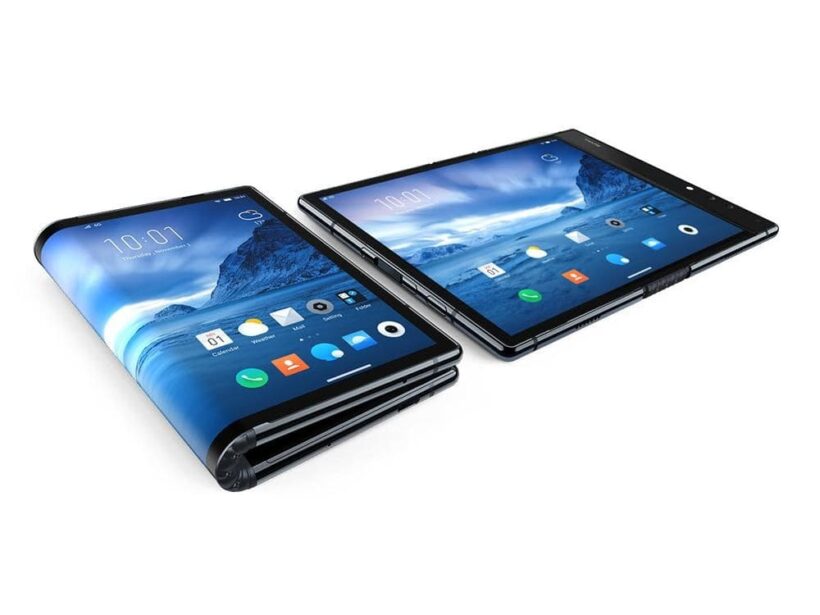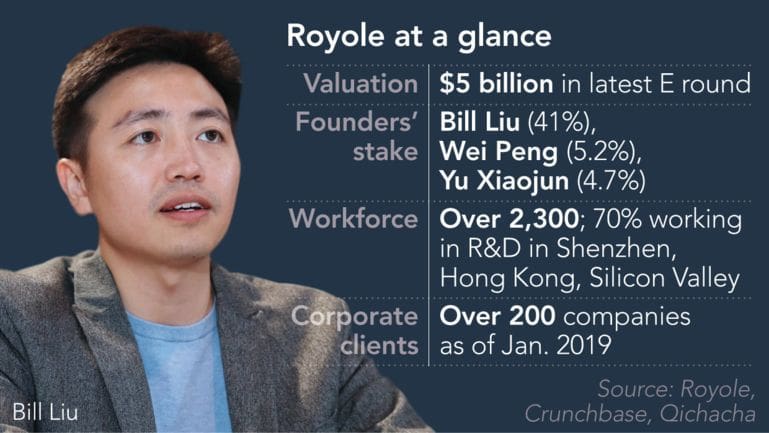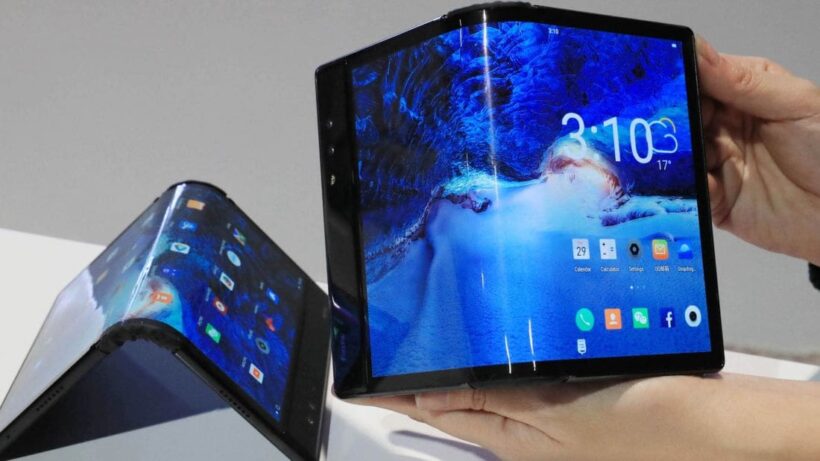Upstart Chinese start-up shades Samsung and Huawei

A Shenzhen-based manufacturer of flexible displays has launched, and is selling, the first workable flexible screen smartphone, beating Samsung and Huawei into the foldable market.
At this week’s Mobile World Congress in Barcelona, Samsung and Huawei made all the noise with their new $2,000 foldable phones. But they very secret with specs and not available for review with people clamoring for a few seconds with the new devices.
But at Royole’s stand visitors could touch and play with the smartphone industry’s newest innovation in years. The question remains however, will buyers actually want a flexible phone? And will they put around $1,300 on the table to be able to have a phone that unfolds unto a tablet, in the case of the Royale FlexPai?
With the world’s tablet market shrinking in the recent years and smartphone screen sizes getting generally larger, it’s a brave bet from these Chinese and Korean tech companies.
Samsung’s Galaxy Fold and Huawei’s Mate X appear sleeker and more robust. But the Royole’s $1,300 FlexPai is already available, out and about. Whilst visitors to the Mobile World Congress were only able to gaze in wonder at the Samsung and Huawei foldable, people were already touching, swiping and ‘folding’ the new Royole.
But Royole is no technology giant when compared to Huawei and Samsung. Just seven years old, it hasn’t produced a smartphone before. But late last year Royole began commercial production of the FlexPai in Shenzhen.

INFOGRAPHIC: Nikkei Asian Review
That achievement, and its expertise in bendable screens and sensors, has caught the attention of big international companies. In December Royole signed an agreement with Airbus, the European aerospace heavyweight, to codevelop flexible displays and sensors for next-generation aircraft cabins.
Royole is claiming a number of firsts: the world’s thinnest full-color AMOLED flexible display and flexible sensors, the world’s first foldable 3D mobile theater, with collapsing headphones attached to a 3D headset and the world’s first curved car dashboard based on flexible electronics.
It holds more than 2,500 patents and has a 102,000 square metre flexible display production campus in Shenzhen, as well as offices in California and Hong Kong.
Co-founder and CEO Bill Liu says that the idea of inventing a screen as flexible as a piece of paper suddenly struck him. “I thought that would be really cool and flexible displays could revolutionize the way we interact with the world,” he recalled.
“Since there were no examples to follow, we had to do everything from scratch,” Liu said. “We tried and failed. The screen we made contains more than 20 million transistors and has nearly 100 nanomaterials. You have to get every detail right to make it work. Calling the experiment exhausting feels like an understatement.”
Before launching its flexible smartphone last October, Royole was mostly known in the business world. Liu says his startup has supplied customised flexible displays to more than 200 corporate clients, including Hong Kong-listed sporting goods maker Li Ning Company and Chinese smart device producer Toppers. The partnership with Airbus marks a significant coup, even if there is no set timeline for production of the cabin displays.
The Royole booth at the Mobile World Congress in Barcelona was the only place visitors could actually touch a foldable smartphone.

PHOTO: Yoshiyuki Tamai
Latest Thailand News
Follow The Thaiger on Google News:


























